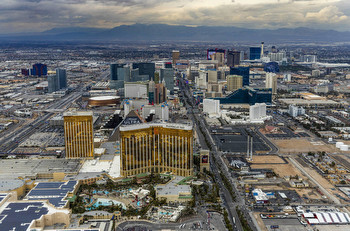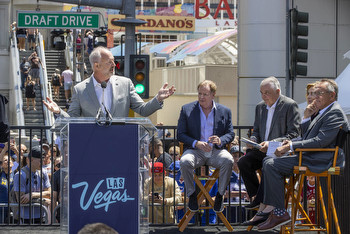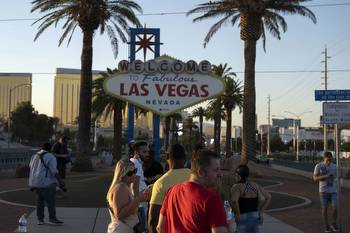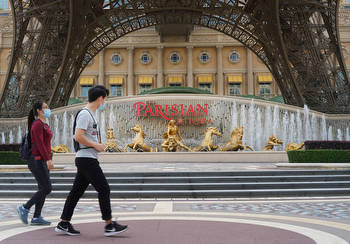New bill bleeds Las Vegas tourism dry

Las Vegas and tourism go hand in hand. Millions of visitors travel here each year to experience all that our city has to offer — from the casinos on the Strip, to concerts at the Sphere, to major events such as the Super Bowl. More than 40 million people visited Las Vegas in 2022, spending nearly $45 billion — a record. That level of spending is critical for our region’s economic health, but it is also in jeopardy due to a new bill in Congress.
Millions of visitors to Las Vegas rely on credit card rewards to fund their travel. It’s a simple concept: Use a credit card to make purchases, earn airline miles, hotel points and cash back, and use those rewards to save money when booking a trip. A new survey from the U.S. Tourism Economy Alliance shows just how critical these rewards are for travelers. The survey finds that of the 80 percent of Americans using credit cards with rewards, seven in 10 say they would cut travel spending if those rewards were to be reduced or eliminated.
The impact would be especially acute for middle-class families that use credit card rewards to pay for vacations and visits to loved ones. The survey found that of households making under $75,000, nearly one-third said they would take fewer trips.
Despite these impacts, the Senate is currently considering the Durbin-Marshall credit card bill, which would change how credit card transactions are processed. In doing so, it would eliminate credit card rewards. Currently, whenever someone makes a purchase by using a credit card, the retailer pays a small fee — usually 1 percent to 3 percent — that is used to ensure the security of the transaction and protect both the credit card user and retailer from fraud. Banks also use this fee to fund popular rewards programs that make travel to Las Vegas possible.
The Durbin-Marshall bill would allow retailers to choose cheaper, less secure networks, potentially further exposing consumers to fraud and eliminating the funding used for rewards. And while retailers say they will pass this savings on to consumers, does anyone expect big box stores to cut prices by up to 3 percent? No, they will pocket the savings — all while consumers lose access to critical rewards.
Eliminating credit card rewards would not just impact travelers, it would impact tourism in Nevada. Cutting travel spending or taking fewer trips would have major negative effects on our state’s businesses, employees in the hospitality industry and municipalities that need tax revenue. Even a small percentage cut in visitation would send shock waves through the economy.
Consider the restaurant industry, which has notoriously thin profit margins and faces challenges, from the cost of food to labor shortages. If a restaurant were to see a dip in revenue, that would mean they may need to hire fewer employees, lay off current employees or even close. On top of that, with less spending from tourists, the local municipality would collect less tax revenue. That adds pressure on the budget and forces leaders to consider either raising taxes or cutting services.
Nevada’s economy is so closely tied to tourism that any changes to the credit card reward system would have lasting, negative impacts. While Sens. Jacky Rosen and Catherine Cortez Masto have not indicated if they support the bill, I hope that before they cast a vote they consider what it would mean for workers in the industry and our communities.
Colleen Birch is former COO of Fontainebleau Las Vegas and spent more than two decades as an executive in Las Vegas casinos.





































